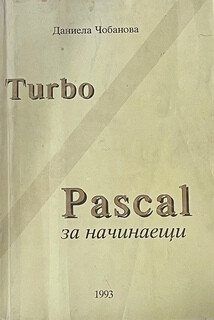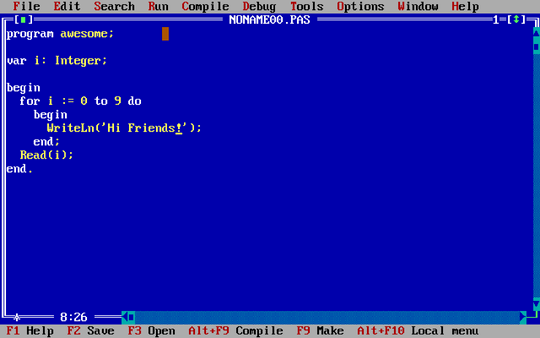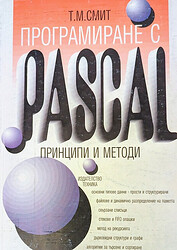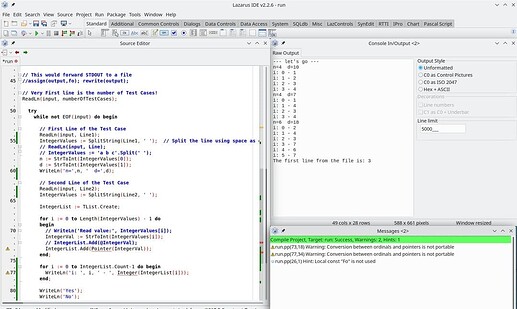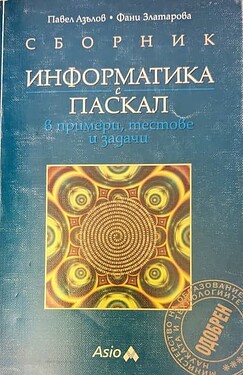A while back I was going through my childhood books and found a long forgotten treasure from 1993. This is a Bulgarian book called “Turbo Pascal for Beginners” by Daniela Chobanova.
I cracked open that dusty old friend of mine and I was immediately filled with the memories and the excitement of learning about computers and how to program them for the first time. At the time I read this book (1993) I did not have a personal computer at home. My friends and I used to go to an after-school program where we learned DOS, Norton Commander, and Turbo Pascal. We had access to half a dozen 286DX computers and took turns programming them. We all carried a 5.25-inch DD (double density) floppy disk around. These provided storage capacity of 360 KB, which was more than adequate for the source code we wrote and the compiled binaries. But we had access to this lab only a couple of times a week and only during the school year. The rest of the time and during our long summer breaks I had no choice but to compose my Pascal programs with pen and paper. The start of a new week or school year gave me the exciting chance to compile the code I scribbled on paper (delayed compilation). That was a blast and a fulfilling experience!
Nowadays I have a computer at home and don’t need to write Pascal on paper anymore. But I still think it is valuable and perhaps even entertaining to write code (or at least diagram problems) with pen and paper. I believe this is especially important for new programmers to master.
This week I wanted to get back into recreational retro programming. I started by downloading FreeDOS and installing Turbo Pascal. It turns out you can run Turbo Pascal 7.1 in your browser. I can actually type and run source code like it is 1993! This is going to be so much fun!
I might even sink my teeth into another old Pascal text book I found and implement some of the algorithms in Turbo Pascal (again)! This is the Bulgarian translation of the 1991 book Intermediate programming principles and techniques using Pascal by Terry M. Smith.
Now some folks believe Pascal to be outdated and a relic of the past. But once in a while we are reminded that there is a modern Pascal ecosystem and it is alive and well. Particularly lovely is Peter5’s HN comment: “[FreePascal] is a full-featured and very fast compiler. The resulting program is a rival for the best output of C/CPP compilers. It can be used in the style of simpler languages like Go and is almost as safe as Rust in a much faster manner. It has a great but old-looking IDE, Lazarus. It has been under active development for decades…”
So it turns out that Free Pascal is a modern compiler for a language, which on the surface, appears quite old. There is an IDE called Lazarus and it too is a blast. I found it meditative to roll back time 30 years and code in my first programming language.
Writing in a “dead” computer language, much like speaking Latin, is perhaps the true definition of recreational programming.
I even found the excellent “Problems: Informatics with Pascal” book by Pavel Azalov and Fani Zlatarova, which was the Bulgarian version of LeetCode in 1995. The problems in this book are fantastic! I look forward to publishing a few of these here!
Links
- HackerNews post
- A Guided Intro to the Free Pascal Language
- (WebArchive) A Guided Intro to the Free Pascal Language
- Lazarus IDE
- FreeDOS
- Borland Museum (Turbo Pascal 5.5, Turbo C++ 1.01, Turbo C 2.01, Turbo Pascal 3.02, Turbo Pascal 1.0)
- Software tools in Pascal by Brian W. Kernighan, P. J. Plauger - 1981
